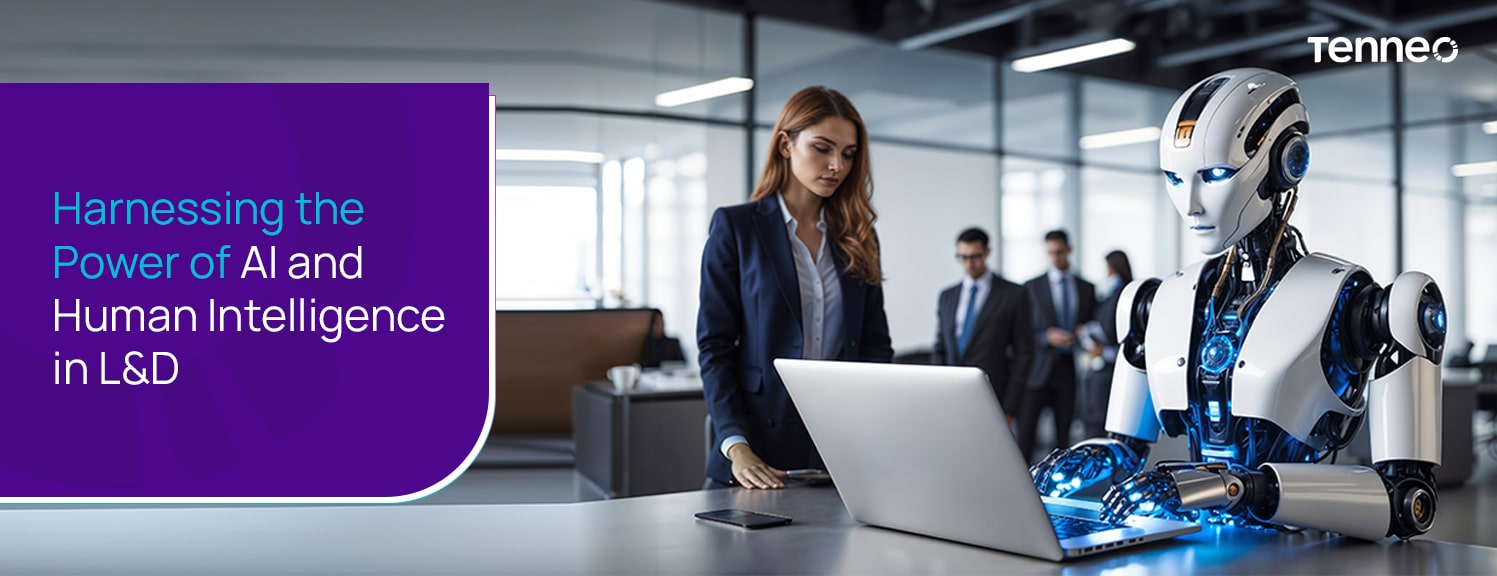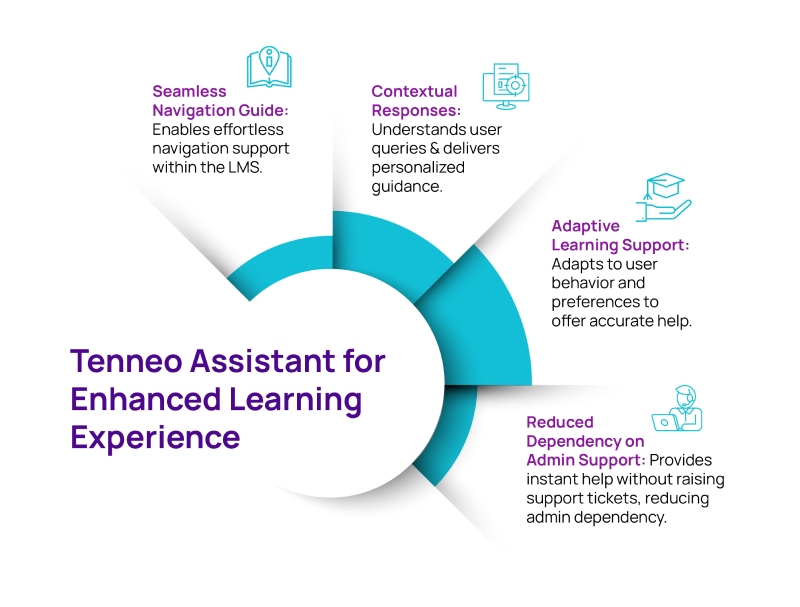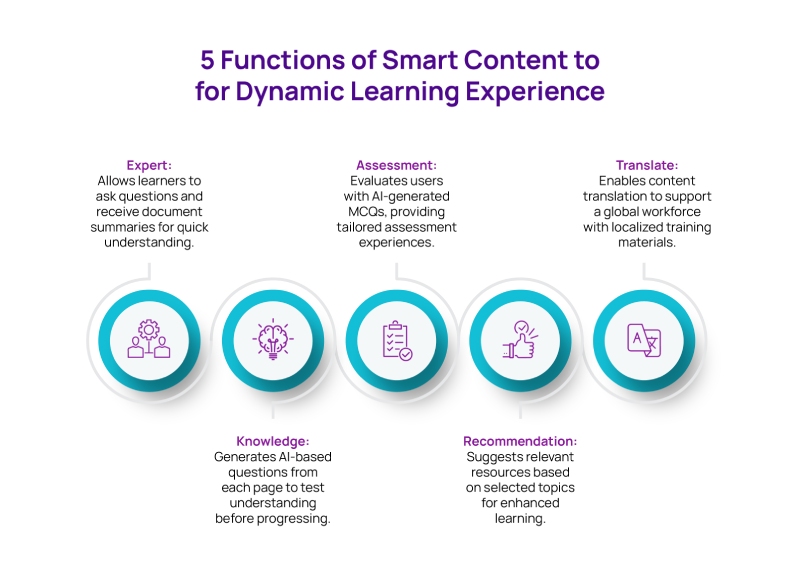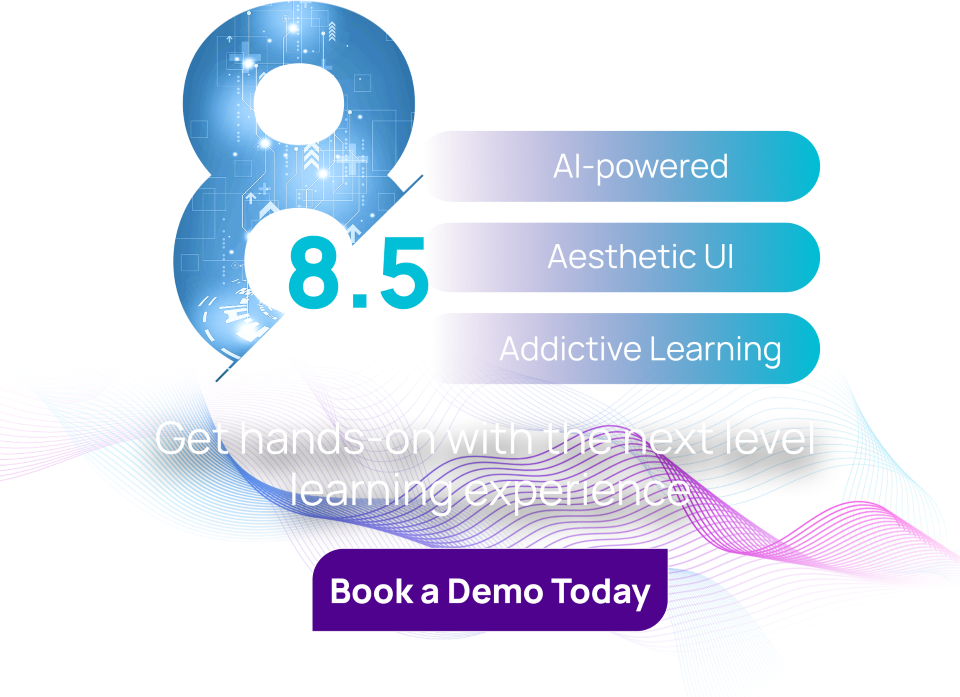
Is Your Sales Training LMS Taking Your Performance a Notch Higher
August 13, 2024
Master the Art of Customer Service Training: Top 6 Skills to Develop
October 1, 2024
Is Your Sales Training LMS Taking Your Performance a Notch Higher
August 13, 2024
Master the Art of Customer Service Training: Top 6 Skills to Develop
October 1, 2024Will AI Replace L&D Professionals and Trainers?

The integration of AI in L&D has revolutionized employee learning and development, sparking a pressing question: Will AI eventually replace L&D professionals and trainers? As organizations increasingly embrace AI-powered LMS solutions, it’s natural for concerns to arise about the future of L&D professionals. AI's ability to automate tasks, deliver personalized learning, and process massive amounts of employee learning data at lightning speed raises the possibility of a shift in traditional learning roles.
Yet, while AI in learning brings undeniable advantages, the crucial role of human trainers and L&D professionals remains irreplaceable. Through this article, we will explore how AI-powered LMS platforms will continue to transform learning environments and the crucial role of L&D professionals. By the end, you will get the answer to – Will AI really replace L&D professionals?
How Generative AI Can Assist L&D Professionals
1. Continuous Learning Support
One of the most powerful applications of AI in L&D is its ability to provide round-the-clock learning support. L&D professionals or support teams can't always be available to answer questions or provide guidance, but AI-powered LMS systems can. With instant, contextual feedback, AI ensures that learners are never left waiting, keeping them engaged and productive.
Tenneo’s GenAI-powered learning assistant enables seamless learner support, facilitating AI in learning that feels personalized without human intervention. This unbroken learning experience is crucial for maintaining momentum and optimizing retention rates.

2. Making Courses Interactive
Today's learners expect more than just static content, they want to engage and interact with the content. Generative AI breathes new life into traditional learning materials, making them interactive and adaptive. AI can answer learner queries in real-time, recommend further resources based on performance, and offer personalized assessments.
Tenneo's AI-powered LMS offers Smart Content feature that transforms conventional courses into dynamic learning experiences. Learners are empowered to engage with materials in ways that enhance understanding and practical application. This is where the impact of AI on training shines, as it transforms passive learning into an active, personalized journey.

3. Content Creation
Creating high-quality training materials is often a time-consuming task for L&D teams. This is where AI in L&D truly excels by automating the content creation process. AI can generate training modules, assessments, and even full course outlines based on organizational learning objectives, saving L&D professionals significant time.
Tenneo’s Canva integration equips L&D teams with easy-to-use design tools to create professional, visually appealing content. Here, the role of AI in learning is to assist in content creation, freeing up human professionals to focus on strategy and learning design rather than logistics.
4. Automated Assessments and Feedback
Assessing employee progress can be time-consuming, especially in large organizations. AI steps in by automating assessments and providing real-time feedback. This ensures that training is not just a one-way communication but a continuous loop of learning, assessment, and improvement.
AI-powered LMS systems offer automated, consistent evaluations of on-the-job performance, helping organizations ensure that their workforce is continually upskilling. AI-powered assessments deliver immediate, actionable insights, allowing both learners and L&D professionals to adjust and optimize the learning journey effectively.
5. Language Translation and Localization
Global workforces require learning content that transcends language barriers. AI simplifies this by offering automatic translation and localization, ensuring that training materials are accessible to employees, regardless of their native language. This is a crucial feature in any enterprise LMS that serves a geographically dispersed workforce.
Tenneo’s Smart Content, for instance, integrates AI-driven translation, ensuring that employees in different regions receive consistent, high-quality learning experiences. This levels the playing field, enabling organizations to offer inclusive, equitable training programs to all employees, whether in blue-collar or corporate roles.
Why L&D Professionals Will Continue to Play a Crucial Role
1. Contextual Understanding
While AI in learning is highly effective at processing vast amounts of data and providing immediate insights, it lacks the human element of contextual understanding. L&D professionals possess the deep knowledge of an organization’s culture, challenges, and goals, which is critical when designing impactful learning programs. AI can analyze metrics and predict trends, but it cannot fully grasp the nuanced context in which those metrics exist.
2. Emotional Intelligence
Learning is not purely transactional, it’s deeply human. L&D professionals offer emotional intelligence, an attribute that no AI system can replicate. While AI can deliver content and track performance, it cannot provide the emotional support or encouragement that many learners need to succeed. The future of L&D professionals will continue to hinge on their ability to connect with learners on a personal level, motivating them and offering tailored guidance when challenges arise.
3. Adaptability and Creativity
L&D professionals excel in their ability to adapt to new business challenges and provide creative solutions. AI in L&D can follow predefined algorithms, but it cannot improvise when an unexpected issue arises. Human trainers can address the issues that AI systems fail to address. Additionally, an AI-powered LMS can create visually appealing content but not without human intervention. It will always need human input to get directions for content creation. AI systems cannot replicate human creativity.
4. Facilitation and Collaboration
One of the most important aspects of learning is collaboration, and L&D professionals play a key role in fostering these interactions. Peer-to-peer learning, group discussions, and collaborative projects thrive under the guidance of skilled facilitators who understand how to engage and motivate learners. While AI can manage content distribution, create social learning hubs and track individual progress, it cannot replicate the role of a facilitator in building a collaborative learning environment.
5. Ethical Considerations
As AI-powered LMS platforms become more prevalent, questions about data privacy and ethical use arise. The future of L&D professionals includes ensuring that AI tools are used responsibly, that data is handled ethically, and that learning systems are fair and transparent. This human oversight is vital in maintaining trust within organizations, especially when employees' personal data is at stake.
Conclusion: AI and L&D Professionals - A Symbiotic Future
So, will AI really replace L&D professionals? The answer is no.
AI will be a great assistant to L&D leaders in their quest to enhance learning experiences. AI in L&D presents tremendous possibilities for enhancing learning efficiency, support and personalization. However, the real power lies in blending AI-powered LMS tools with the irreplaceable human expertise of L&D professionals.
At Tenneo, we recognize this balance. Our AI-powered LMS enables organizations to harness the best of both worlds - leveraging AI for seamless learning experiences while empowering L&D professionals to lead with strategy, adaptability, and emotional intelligence. With Tenneo, you’re not choosing between AI or human-driven learning; you’re combining them to create a future-ready, holistic learning ecosystem for your organization.
Get in touch with our experts to enhance your learning experience with AI capabilities.




